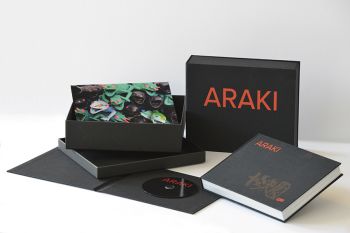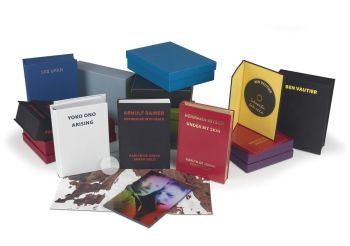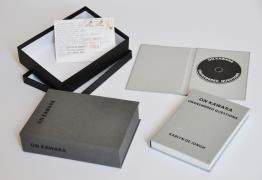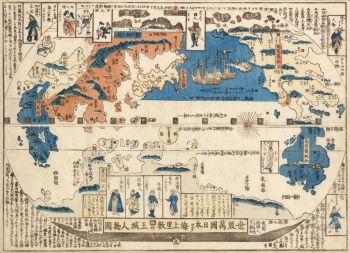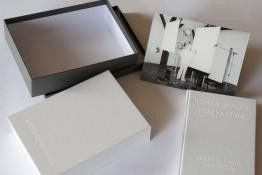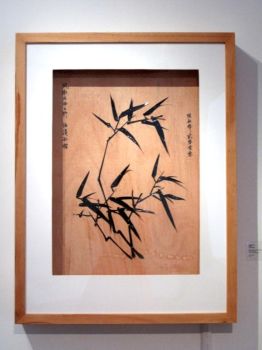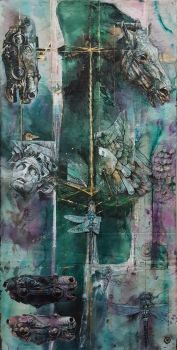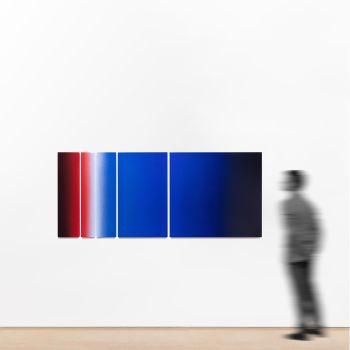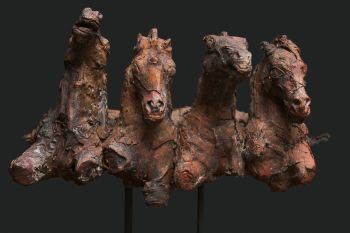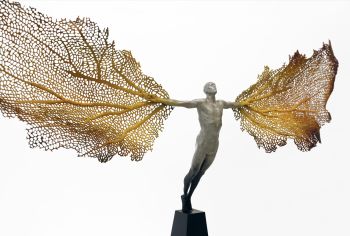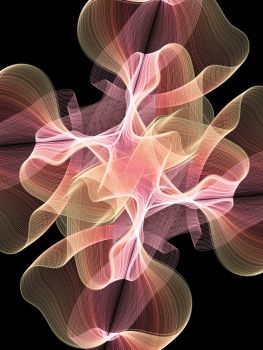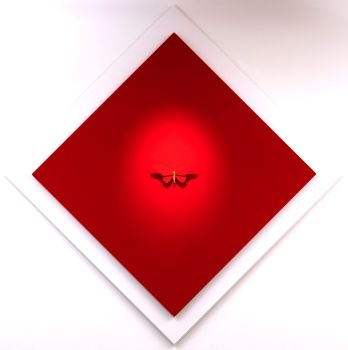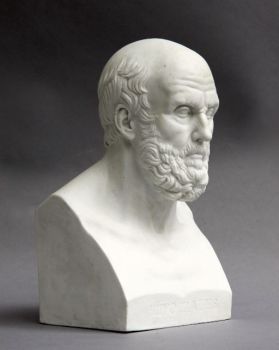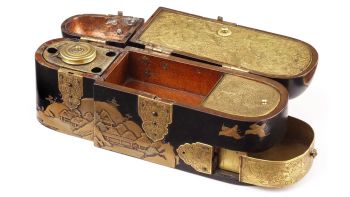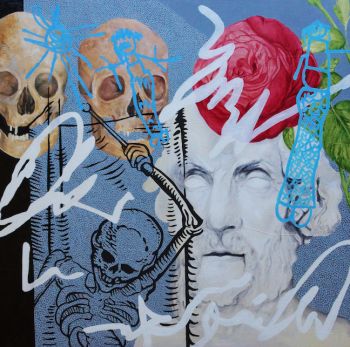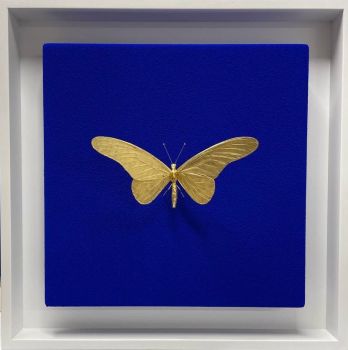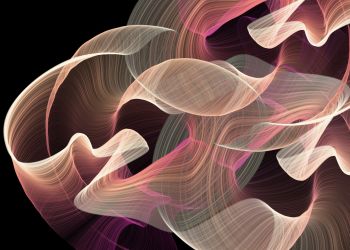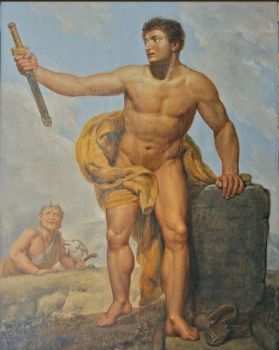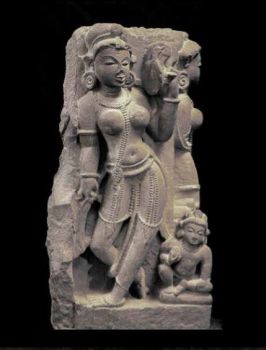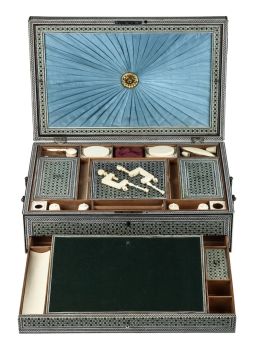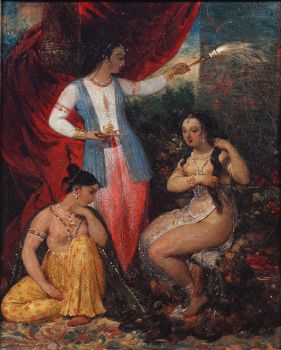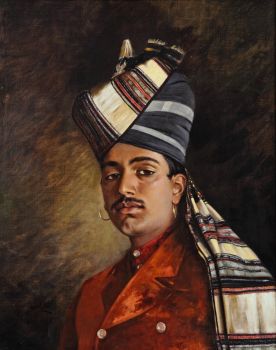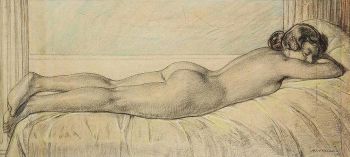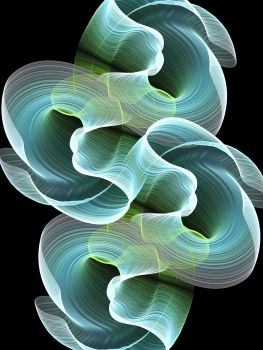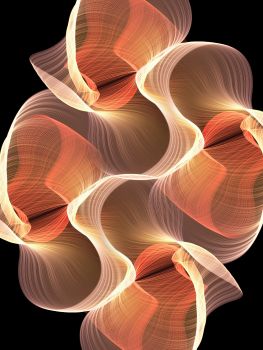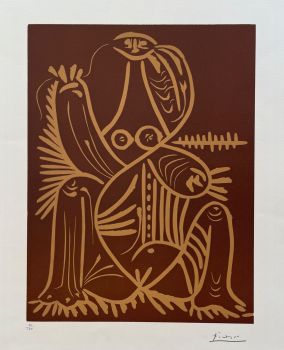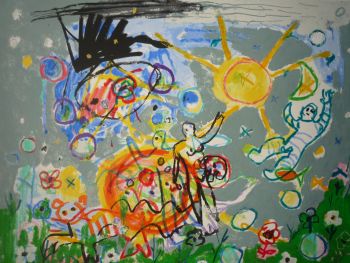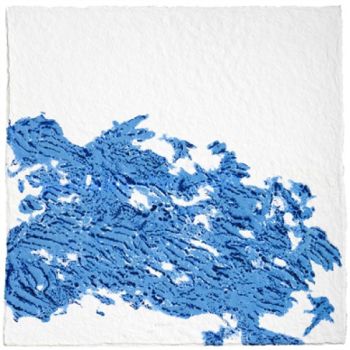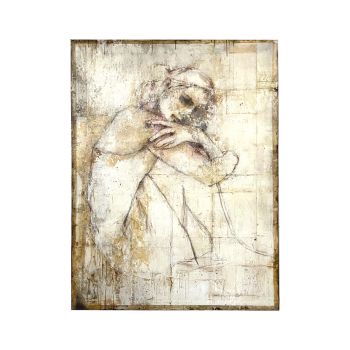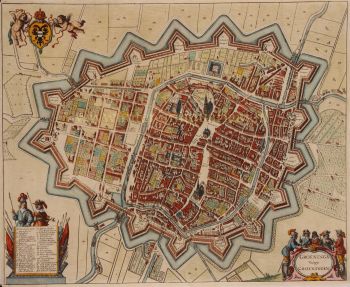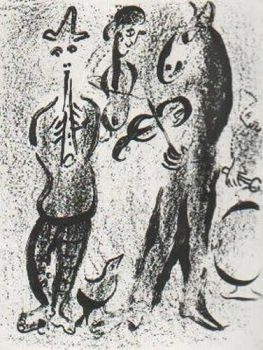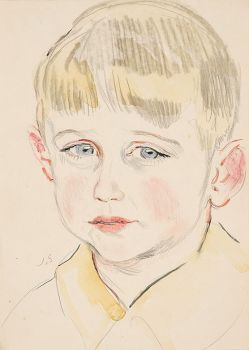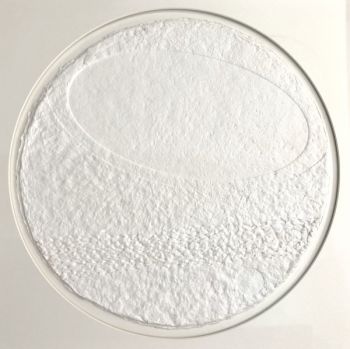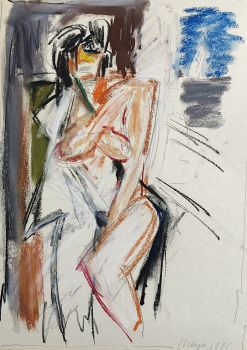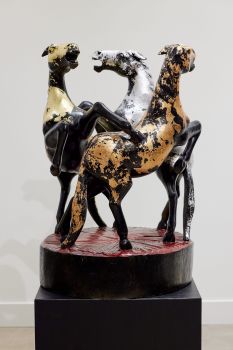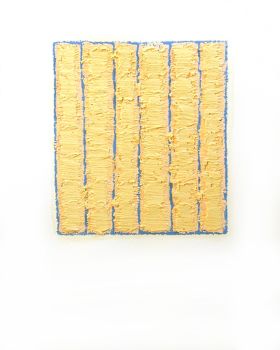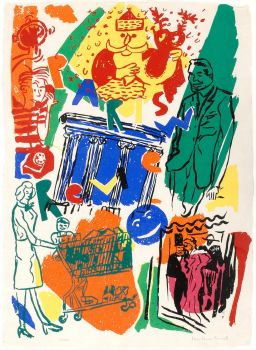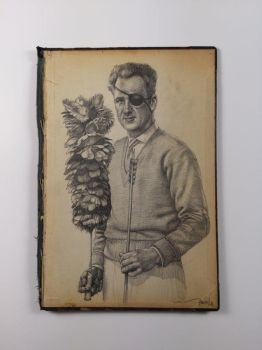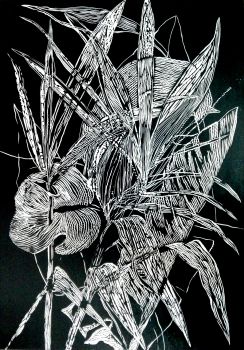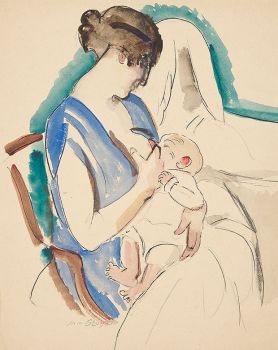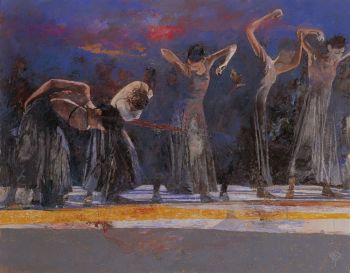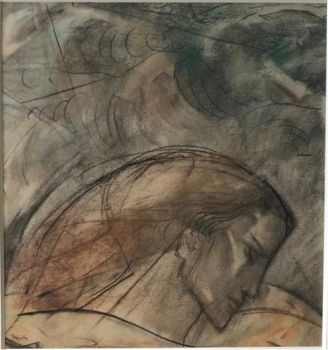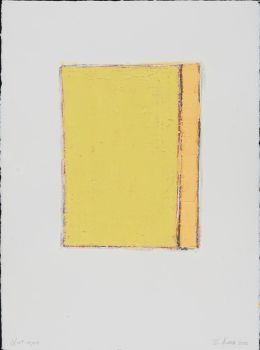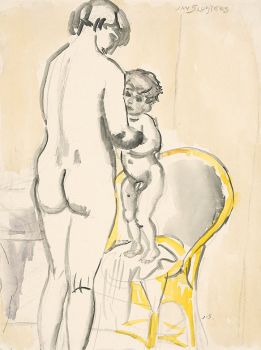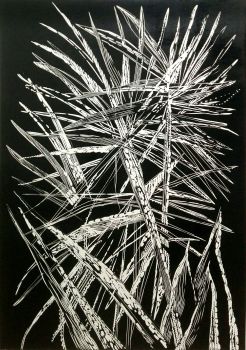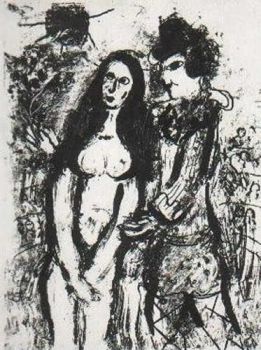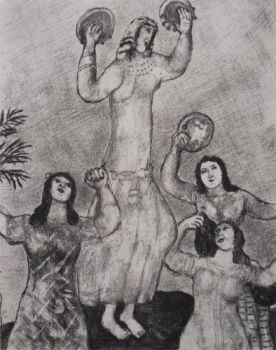Secreta secretorum Aristotelis; Medical secrets plus a largely imaginary Medieval European view of I 1528
Alessandro Achillini
CartaPelle
Attualmente non disponibile tramite Gallerease
- A proposito di opere d'arteSecreta secretorum Aristotelis.
Including:
ARISTOTLE [pseudo]. Maximi philosophi ... de signis aquarum: & tempestatum.
ARISTOTLE [pseudo]. Maximi philosophurum ... de mineralibus.
ALEXANDER OF APHRODISIAS. De intellectu.
AVERROES. De beatitudine anime.
ACHILLINI, Alexander. De universalibus.
ALEXANDER THE GREAT [pseudo]. De mirabilibus Indie.
(Colophon: Lyon, Antoine Blanchard, 23 March) 1528. Small 8vo (15 x 10.5 cm). With a title-page with a decorated woodcut border, woodcut printer's device on last page, 6 woodcut initials. Contemporary blind-tooled sheepskin(?) parchment over wooden boards, in a panel design, brass catch-plates and anchor-plates (straps and clasps lost).
Collection of seven treatises on medicine and philosophy, edited by Alessandro Achillini (1463-1512). Four of these are pseudo-Aristotelian works that had been well known since the 13th century or earlier. The Secreta secretorum is here present in the translation of Philip of Tripoli; the De signis aquarum, ventorum et tempestatum on weather signs, was translated in the 13th century by Bartholomew of Messina; the third pseudo-Aristotle is De mineralibus on gems; the fourth, Alexandri Macedonis ad Aristotelem de mirabilibus Indie, is a fictitious letter by Alexander the Great to his teacher Aristotle, describing the wonders of India and the East. Three other similar "Indian tractates" are known, all of them connected with the romance of Alexander the Great at various points in history.
The three remaining treatises in the present work consist of a work by Alexander of Aphrodisias on the intellect, another by Averroes on the beauty of the soul, and a work by Achillini himself on universals.
Very good copy, with very slight browning and a few marginal spots, lacking the final blank. Binding lacking straps and clasps, and with the (restored?) spine damaged.
Baudrier V, p. 104; Stillwell 578; USTC 155810 (8 copies); cf. Lach II, book 2, p. 94 ; Thorndike V, pp. 47-48. - A proposito di opere artistaAlessandro Achillini (1463 o 1461, Bologna – 1512, Bologna) fu un celebre docente di medicina e filosofia a Bologna e Padova. Ha vissuto a Bologna la maggior parte della sua vita. Fu chiamato "il secondo Aristotele". Era di natura sincera e possedeva un carattere dinamico. Era un formidabile oratore. Le sue opere filosofiche furono pubblicate in un volume (folio), nel 1508, a Venezia, e ristampate nel 1545, 1551 e 1568 (edizioni ampliate). Nel 1506 dovette lasciare Bologna per motivi politici, perché partigiano della famiglia Bentivoglio. Partì per Padova, dove divenne insegnante di filosofia dal 1506 -1508). Achillini fu anche un illustre anatomista, scrisse tra gli altri De humani corporis anatomia (L'anatomia del corpo umano), Venezia, 1516-1524. Fu sepolto nel 1512 a Bologna nella chiesa di San Martino.
Artwork details
Categoria
Soggetto
Materiale e Tecnica
Related artworks
Antonie Derkinderen
Memory book Exhibition of Dutch Painting1892
Prezzo su richiestaKunsthandel Pygmalion
Tilmanus Nicolaus Maastricht
Missale Romanum con fornimenti d'argento olandesi1788 - 1792
Prezzo su richiestaJacob J. Roosjen SRI
Engelbert Kaempfer
IL LIBRO DI ENGELBERT KAEMPFER1651 - 1716
Prezzo su richiestaZebregs & Röell - Fine Art - Antiques
Antonie Derkinderen
Memory book Exhibition of Dutch Painting1892
Prezzo su richiestaKunsthandel Pygmalion
LAWRENCE WEINER
"SKIMMING THE WATER [MENAGE A QUATRE]" Signed book plus small artwork2010 - 2014
Prezzo su richiestaGallerease Selected
Yoko Ono
YOKO ONO: "ARISING" SIGNED BOOK PLUS SMALL ARTWORK 2010 - 2014
Prezzo su richiestaGallerease Selected
Engelbert Kaempfer
IL LIBRO DI ENGELBERT KAEMPFER1651 - 1716
Prezzo su richiestaZebregs & Röell - Fine Art - Antiques
Tilmanus Nicolaus Maastricht
Missale Romanum con fornimenti d'argento olandesi1788 - 1792
Prezzo su richiestaJacob J. Roosjen SRI
1 - 4 / 22Artista Sconosciuto
A rare Japanese export lacquer medical instrument box1650 - 1700
Prezzo su richiestaZebregs & Röell - Fine Art - Antiques
Artista Sconosciuto
UN RARO SADELI INDIANO COMPLETO DI LAVORO E SCRITTURA INTARSIATI1800 - 1850
Prezzo su richiestaZebregs & Röell - Fine Art - Antiques
Hubert Vos
Ritratto di un punjabi nell'India britannica1898
Prezzo su richiestaZebregs & Röell - Fine Art - Antiques
1 - 4 / 24Rene Rietmeyer
"PORTRAIT OF YAYOI KUSAMA JUNE 1999"1999
Prezzo su richiestaEuropean Cultural Centre Collection
Jan Sluijters
Greet met Jantje, Moeder met kind, naakt op een stoel staand1900 - 1940
Prezzo su richiestaStudio 2000 Art Gallery
1 - 4 / 24

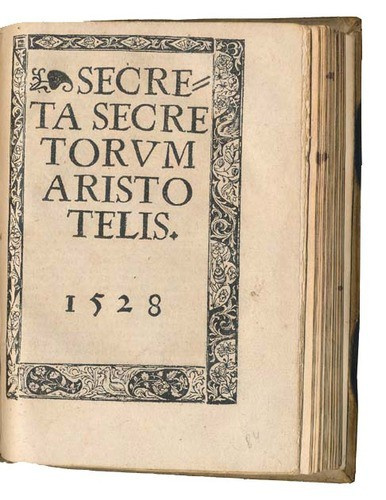




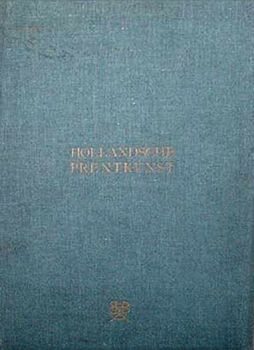
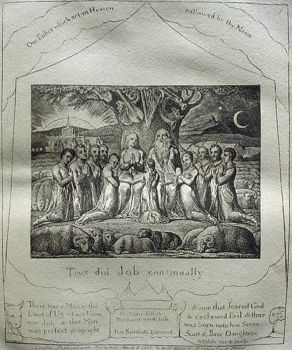
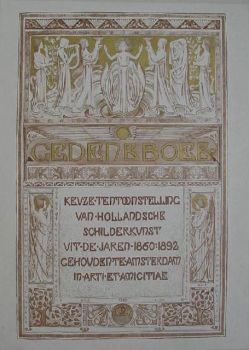
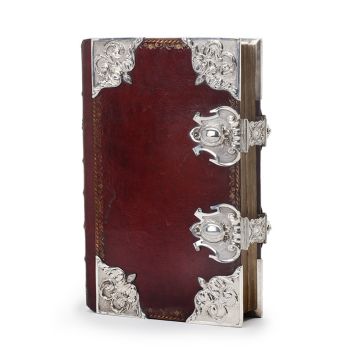
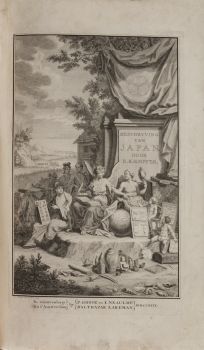
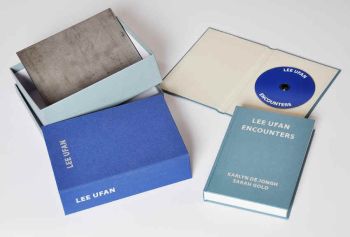
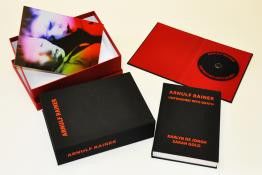
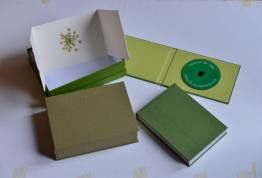
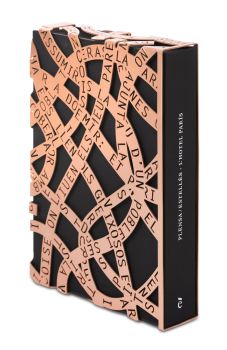
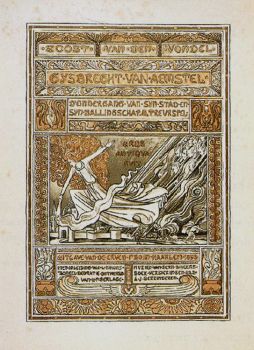
!["SKIMMING THE WATER [MENAGE A QUATRE]" Signed book plus small artwork by LAWRENCE WEINER](https://media-2.gallerease.com/images/442bfd5f-fc31-4e18-a2fa-ee0c08eade64/350x350/skimming-the-water-menage-a-quatre-signed-book-plus-small-artwork.jpg)

